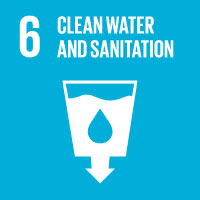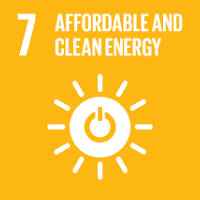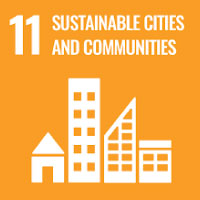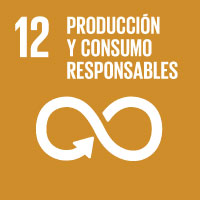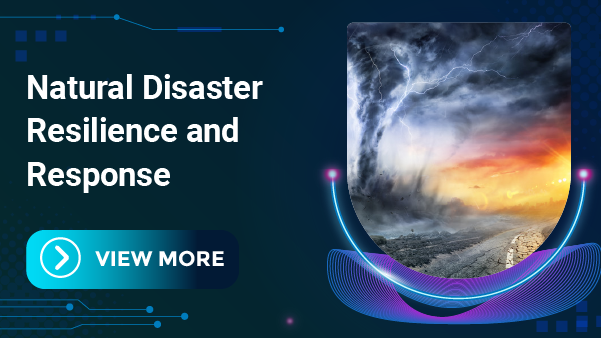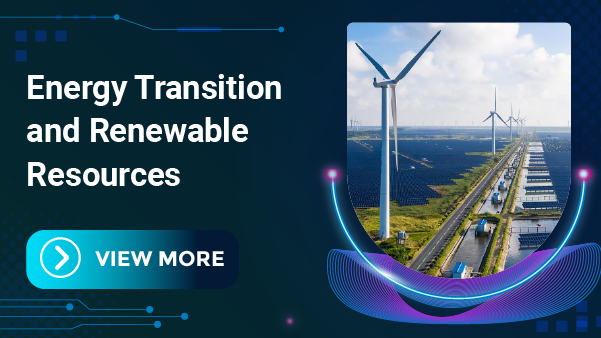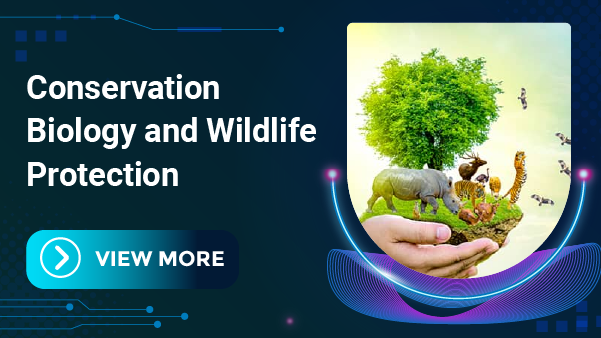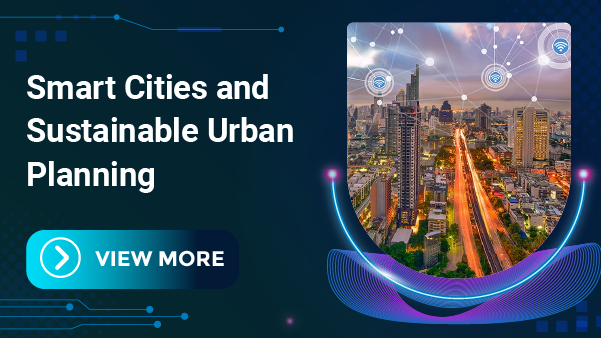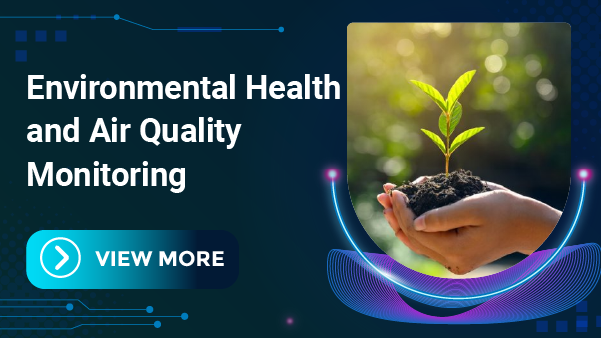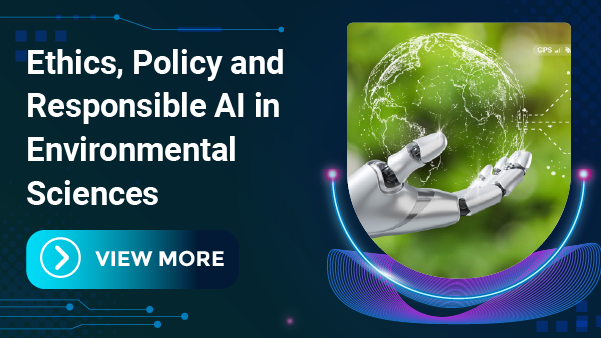Ethics, Policy, and Responsible
AI in Environmental Sciences
Session Overview:
Prepare yourselves for the imminent International Conference on "Beyond Intelligence: AI for a Changing Planet - 2024". Our aim is to provide a platform where esteemed researchers from around the world gather to showcase their latest findings and advancements in their respective fields and enhance their career journey along. This remarkable opportunity serves as a catalyst for academic and professional growth, enabling researchers to make significant contributions to their areas of expertise while also contributing to the betterment of society. Join us as we embark on an extraordinary journey of research innovation, collaboration, and enlightenment, shaping the future and redefining scholarly accomplishments along the way. Beyond Intelligence: AI for a Changing Planet-2024 invites submissions of full papers and abstracts on the following (but not limited to) sessions:
Ethics, Policy, and Responsible AI in
Environmental Sciences is
contribution to
The
Sustainable
Development Goals:
Goal 6: Clean Water and Sanitation
Goal 7: Affordable and Clean Energy
Goal 11: Sustainable Cities and Communities
Goal 12: Responsible Consumption and Production
Goal 16: Peace, Justice and Strong Institutions
Who Can Join
Tracks
Topics of Interest for Submission include, but are not limited to:
1 Ethical considerations in deploying AI for environmental solutions.
2 Policy frameworks for responsible AI in global environmental initiatives.
3 International collaborations and governance in AI for sustainable development.
4 Ethics of AI in Environmental Decision-Making
5 Fair and Equitable Access to AI Environmental Solutions
6 Privacy Concerns in AI-Based Environmental Monitoring
7 Human-AI Collaboration in Environmental Management
8 Policy Development for Ethical AI in Environmental Conservation
9 Public Engagement and Ethical AI Decision-Making
10 Cross-Cultural Perspectives on AI Ethics in Environmental Initiatives
11 AI Governance and Accountability Mechanisms
12 International Collaboration for Ethical AI in Sustainability
13 Community-Based Approaches to Ethical AI Implementation
Session Speaker

Mr. Yonah Welker
Former. Ministry Advisor, Tech Envoy EU_Commission projects
Switzerland
Outcomes:
- A conference session focusing on "Ethics, Policy, and Responsible AI in Environmental Sciences" offers a critical platform for researchers and attendees to address the ethical implications of deploying AI in environmental solutions. Discussions on ethical considerations in deploying AI shed light on potential risks and challenges, encouraging a thoughtful approach to technology implementation that prioritizes ethical principles and human well-being.
- Policy frameworks for responsible AI play a pivotal role in guiding global environmental initiatives towards sustainable outcomes. By examining existing policies and advocating for robust governance mechanisms, participants can contribute to the development of frameworks that promote transparency, accountability, and fairness in AI-driven environmental projects.
- Furthermore, international collaborations and governance in AI for sustainable development foster cross-disciplinary dialogue and knowledge exchange. By facilitating collaboration among stakeholders from diverse backgrounds, this session empowers researchers and policymakers to navigate complex ethical and policy challenges, ultimately advancing the responsible use of AI for environmental conservation and stewardship. Overall, this session serves as a catalyst for fostering ethical decision-making, shaping policy frameworks, and promoting international cooperation in leveraging AI for environmental sustainability.
Scope & Benefits of Attending Beyond Intelligence:AI for a Changing Planet-2024 conference:
Attending the "Beyond Intelligence: AI for a Changing Planet - 2024" conference offers a vast scope of knowledge and numerous benefits across various domains.

Benefits of Attending Beyond Intelligence 2024
- Climate Change Modelling and Prediction: Participants can gain insights into cutting-edge climate change research, exploring innovative modelling techniques and prediction methodologies. By understanding climate patterns and future projections, attendees can contribute to informed decision-making and policy formulation to mitigate the impacts of climate change.
- Eco-friendly Agriculture and Food Security: Researchers and stakeholders in agriculture and food security can exchange ideas on sustainable farming practices, crop management techniques, and food distribution strategies. By promoting eco-friendly approaches, attendees can enhance food production while minimizing environmental degradation and ensuring long-term food security.
- Natural Disaster Resilience and Response: Discussions on natural disaster resilience and response provide attendees with valuable insights into disaster preparedness, early warning systems, and effective response strategies. By leveraging AI and innovative technologies, stakeholders can improve disaster management efforts, enhance community resilience, and save lives during emergencies.
- Energy Transition and Renewable Resources: The conference facilitates dialogue on energy transition and renewable resources, fostering collaboration among researchers, policymakers, and industry leaders. Participants can explore advancements in renewable energy technologies, energy storage solutions, and sustainable energy policies to accelerate the transition towards a low-carbon future.
- Conservation Biology and Wildlife Protection: Attendees can delve into conservation biology and wildlife protection, discussing conservation strategies, habitat restoration initiatives, and biodiversity conservation efforts. By integrating AI and data-driven approaches, stakeholders can enhance conservation efforts, protect endangered species, and preserve ecosystems for future generations
- Smart Cities and Sustainable Urban Planning: Discussions on smart cities and sustainable urban planning offer insights into urban development strategies, infrastructure design, and technology integration for sustainable cities. Attendees can explore AI-driven solutions for optimizing resource management, reducing pollution, and enhancing quality of life in urban environments.
- Circular Economy and Waste Management: The conference provides a platform for exchanging ideas on circular economy principles, waste management strategies, and recycling innovations. By promoting circularity and resource efficiency, stakeholders can minimize waste generation, reduce environmental pollution, and create economic opportunities through sustainable business models.
- Environmental Health and Air Quality Monitoring: Participants can learn about advancements in environmental health research and air quality monitoring technologies. By examining the impacts of air pollution on public health and ecosystems, attendees can advocate for policy interventions, promote cleaner air standards, and improve environmental health outcomes.
- Ethics, Policy, and Responsible AI in Environmental Sciences: Discussions on ethics, policy, and responsible AI in environmental sciences foster critical reflections on the ethical implications of AI technologies. Attendees can explore policy frameworks, ethical guidelines, and governance mechanisms to ensure the responsible use of AI in environmental research and decision-making processes.
Author Guidelines
Guidelines for Abstract Submission:
- Language: Abstracts must be written in English.
- Length: Limited to one paragraph with 200-250 words.
- Format: Submit in MS Word (.doc or .docx) document format.
- Content: Abstracts should provide an informative summary of the original work. Include a brief biography with your abstract, following the example provided in the template.
- Formatting: Center-align the Title, Author's Names, and Affiliations. Underline the presenting author's name.
- Submission: Please submit your abstract through the designated submission portal.
- Acknowledgment: Upon abstract submission, you will receive an acknowledgment email within three working days.
Evaluation Process
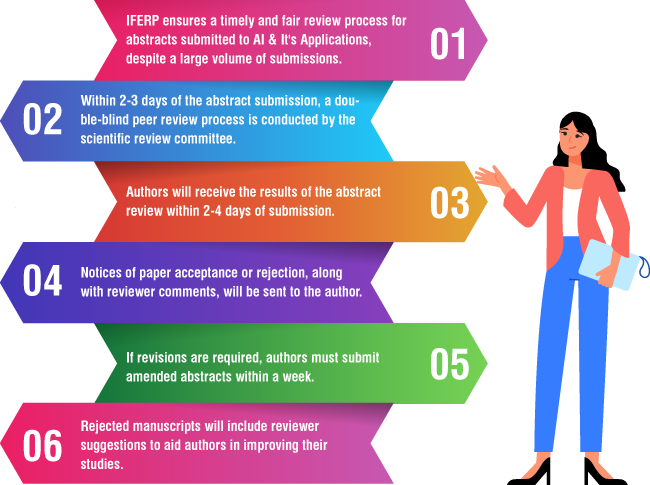
Guidelines for Full Paper Submission
If your abstract has been accepted and the registration fee for Beyond Intelligence 2024 has been paid, you are invited to submit the full paper. Please adhere to the following guidelines for the submission:

- Total number of pages: 6-8 in double-column format
- Language: English (checked for grammar and language errors)
- Tables, figures, and images should be properly named and of high quality.
- Keywords should be written in lowercase letters (except for names/scientific names) and separated by commas.
- Affiliation names, including the country, must be provided.
- Each paper should be structured into the following sections:
- Background, Motivation, and Objective
- Statement of Contribution/Methods
- Results, Discussions, and Conclusions
Once your full paper is prepared according to the above instructions, please proceed to submit it through the provided link. Submit your Full paper Here.

